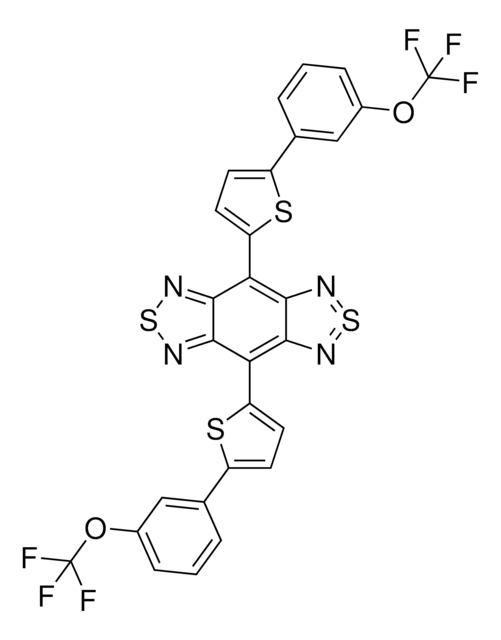911593
NanoFabTx™ microfluidic - nano
device kit for synthesis of 100-200 nm nanoparticles and liposomes
Synonym(s):
Liposomes, Microfluidic kit, NanoFabTx™ device kit, Nanoformulation, Nanoparticle
Sign Into View Organizational & Contract Pricing
All Photos(3)
About This Item
UNSPSC Code:
12162002
UNSPSC Code:
41121811
NACRES:
NA.23
Recommended Products
description
Microfludic device kit for synthesizing nanparticles
Kit components :
Quality Level
application(s)
advanced drug delivery
Related Categories
General description
NanoFabTx™ Microfluidic - nano device kit is a set of plug-and-play, easy-to-use microfluidic components that are compatible with Dolomite microfluidic systems and standard syringe pumps (not included). The device kit can be combined with our special nanoformulation kits (please visit www.sigmaaldrich.com/nanofabtx) to form nanoparticles or liposomes 100 to 200 nm in size. The device kit includes a comprehensive protocol, pre-assembled microfluidic chip manifold, tubing, and required accessories.
Application
NanoFabTx™ Microfluidic - nano device kit is designed to work with NanoFabTx™ - nano reagent kits (including 909637, 918075, and 907766) to synthesize drug-encapsulating liposome nanoparticles (LNP) and drug-encapsulating polymeric nanoparticles for targeted drug delivery research. Our device kit simplifies LNP formulation and polymeric nanoformulation by leveraging microfluidic technologies to achieve narrow size dispersity and high batch-to-batch consistency. The microfluidic chip manifold is chemically robust and compatible with a variety of solvents and therapeutics relevant in nanomedicine. The microfluidic chip geometries and controllable flow enable the user to achieve targetable particle diameters with homogenous shape and structure from 100 to 200 nm in size. By enabling users to easily fine-tune the synthetic parameters, our microfluidic-based tool allows scalable synthesis of drug-encapsulating nanocarriers for researchers in the field of precision medicine, drug discovery, and nanoparticle cancer treatment.
Features and Benefits
- Step-by-step microfluidic-based protocols developed and tested by our formulation scientists
- Optimization of drug encapsulation and loading efficiency in nanoparticles and liposomes
- Selection of optimal nanoparticle and liposome size of any size between 100-200 nm
- Small reaction volumes to reduce waste of expensive reagents and therapeutics
Legal Information
NANOFABTX is a trademark of Sigma-Aldrich Co. LLC
related product
Product No.
Description
Pricing
Certificates of Analysis (COA)
Search for Certificates of Analysis (COA) by entering the products Lot/Batch Number. Lot and Batch Numbers can be found on a product’s label following the words ‘Lot’ or ‘Batch’.
Already Own This Product?
Find documentation for the products that you have recently purchased in the Document Library.
Samar Damiati et al.
Genes, 9(2) (2018-02-22)
Microfluidic devices present unique advantages for the development of efficient drug carrier particles, cell-free protein synthesis systems, and rapid techniques for direct drug screening. Compared to bulk methods, by efficiently controlling the geometries of the fabricated chip and the flow
Andrew Gdowski et al.
Journal of nanobiotechnology, 16(1), 12-12 (2018-02-13)
The process of optimization and fabrication of nanoparticle synthesis for preclinical studies can be challenging and time consuming. Traditional small scale laboratory synthesis techniques suffer from batch to batch variability. Additionally, the parameters used in the original formulation must be
Xuanyu Li et al.
Advanced drug delivery reviews, 128, 101-114 (2017-12-27)
Microfluidic chips allow the rapid production of a library of nanoparticles (NPs) with distinct properties by changing the precursors and the flow rates, significantly decreasing the time for screening optimal formulation as carriers for drug delivery compared to conventional methods.
Our team of scientists has experience in all areas of research including Life Science, Material Science, Chemical Synthesis, Chromatography, Analytical and many others.
Contact Technical Service





